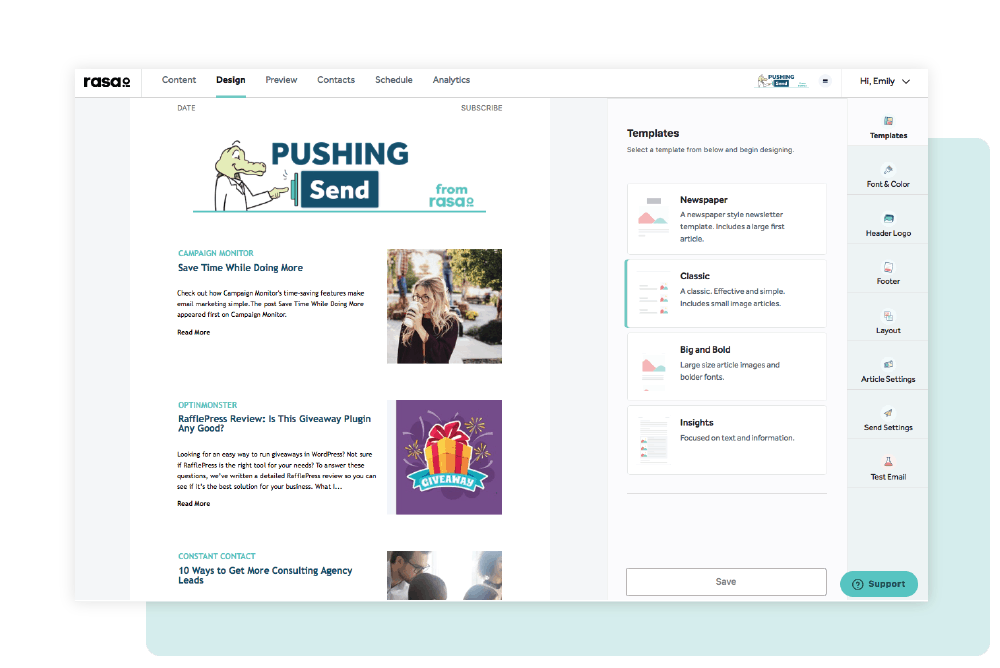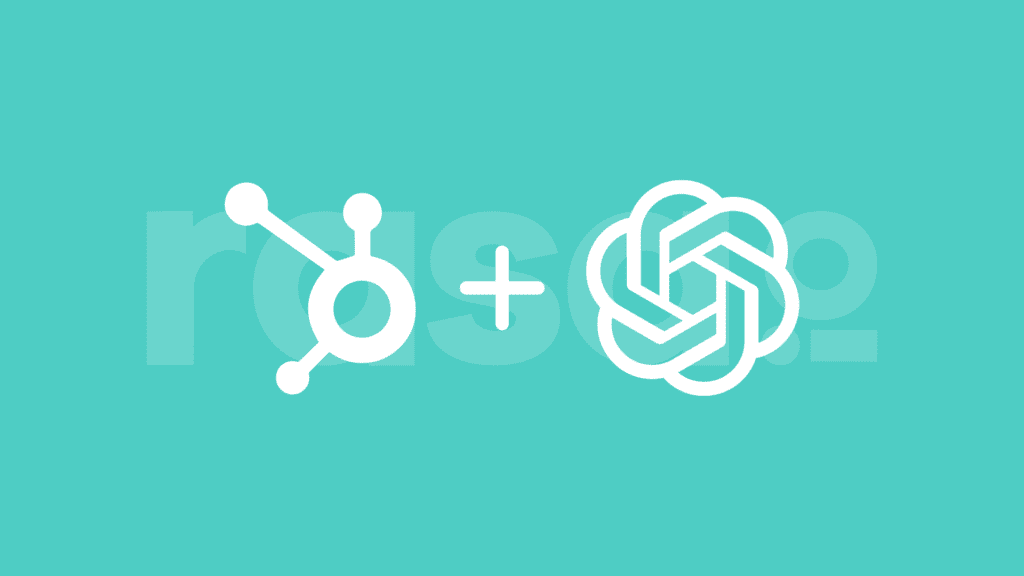Machine learning has become integral to digital marketing efforts across a wide swath of industries and sectors. Machine learning marketing tools provide valuable insights into consumer behavior, preferences, and patterns by analyzing vast amounts of data, enabling marketers to create highly personalized and targeted campaigns that resonate with their audience and drive better results.
Read on to learn more about the role of machine learning in marketing, best practices, and examples of how machine learning is already touching our lives.
Machine Learning and Marketing: Best Practices
To make the most of machine learning, a few best practices should always be considered.
They are as follows:
🔎 Collect and analyze high-quality data
The quality of the data used for machine learning is critical to its success. Ensure that the data is accurate, relevant, and comprehensive.
🤏 Start small
Machine learning can be overwhelming, and it’s best to start small with a specific use case, such as optimizing email subject lines or product recommendations.
🧰 Use the right tools
Many machine learning marketing tools are available, and choosing the best fit for your needs and expertise is essential.
📏 Measure and analyze results
Machine learning tools require ongoing monitoring and adjustment. Therefore, regularly analyze the results and optimize models for better outcomes.
Machine Learning and Email Marketing
Email marketing remains one of the most effective ways to engage customers and promote products or services. However, an email marketing campaign’s success depends on many factors, such as the relevance of the content, timing, and personalization.
Machine learning can help marketers optimize these factors to increase the effectiveness of their email marketing campaigns.
- Personalization: Machine learning algorithms can analyze customer data, such as purchase history, browsing behavior, and demographic information, to provide highly personalized email content. That includes personalized subject lines, product recommendations, and content based on customer preferences.
- Timing: Machine learning marketing tools can analyze the best times to send emails based on customer behavior and preferences. That can help marketers increase the open and click-through rates of their campaigns.
- A/B Testing: Machine learning can also help with the A/B testing of email campaigns. It can analyze different email subject lines, images, and content to determine which performs best.
How Machine Learning is Already Touching Our Lives
You might not know it, but many famous companies use machine learning to deliver more target results to their audiences. You often interact daily with companies, software programs, emails, and more, that use machine learning.
Here are some examples:
- Writing Tools: Popular writing tools like Grammarly use a machine learning algorithm to provide suggestions for improving writing style, grammar, and tone. By analyzing large amounts of data, including user behavior and feedback, Grammarly delivers highly accurate and relevant suggestions to its users.
- Healthcare: Machine learning is being used in healthcare to improve patient outcomes and streamline processes. For example, machine learning algorithms can analyze patient data to predict which patients are at the highest risk of developing certain diseases or conditions, allowing healthcare providers to take preventive measures. Machine learning can also help healthcare providers identify patterns in patient data that can be used to optimize treatments and improve patient outcomes.
- Streaming Sevices: Streaming services like Netflix use machine learning algorithms to recommend content to its users based on their viewing history, ratings, and preferences. This personalization has helped Netflix increase engagement and retention rates.
- Virtual assistants: Virtual assistants such as Siri, Alexa, and Google Assistant use machine learning to understand natural language and respond to user requests. These virtual assistants have become an increasingly popular way for people to interact with their devices and access information, and machine learning is a key technology that makes this possible. By analyzing large amounts of data and learning from user interactions, virtual assistants can provide increasingly accurate and personalized responses to user requests supporting the customer experience.
- Online stores: Online stores like Amazon use machine learning to provide personalized product recommendations to its customers. Amazon can suggest relevant and valuable products to its customers by analyzing purchase history and browsing behavior increasing customer satisfaction.
The Role of Machine Learning in Email Newsletters
Chances are, if you subscribe to any email newsletters, they are likely being delivered through a software platform that utilizes machine learning and artificial intelligence.
Take rasa.io, for example. We use deep learning marketing tools and AI machine learning to create hyper-personalized email newsletters, enhancing the personalized experience..
By analyzing user behavior and preferences, our newsletter platform makes customer segmentation easy; it provides relevant and engaging content to each subscriber on your list, personalizing each newsletter based on the subscriber’s interests and behavior.

Enhance your digital marketing efforts and content strategy!
Save time curating so you can spend your efforts on the “bajillion” other things you need to do.
The Power of Machine Learning Continues to Grow
Machine learning and marketing go hand in hand as machine learning has become essential for creating personalized and targeted campaigns that resonate with their audience. Machine learning has transformed digital marketing by providing valuable insights into consumer behavior, preferences, and patterns by analyzing vast amounts of marketing data.
When it comes to email marketing, machine learning helps with personalization, timing, and A/B testing to increase the effectiveness of campaigns. Our platform, rasa.io is an excellent example of how machine learning can enhance email newsletters to provide personalized content that engages subscribers and drives better results.
As machine learning continues to evolve, we can expect to see more innovative uses of this technology in marketing, including predictive analytics, chatbots, and voice search optimization. The key to success is to start small, use high-quality data, and measure and analyze results regularly.











